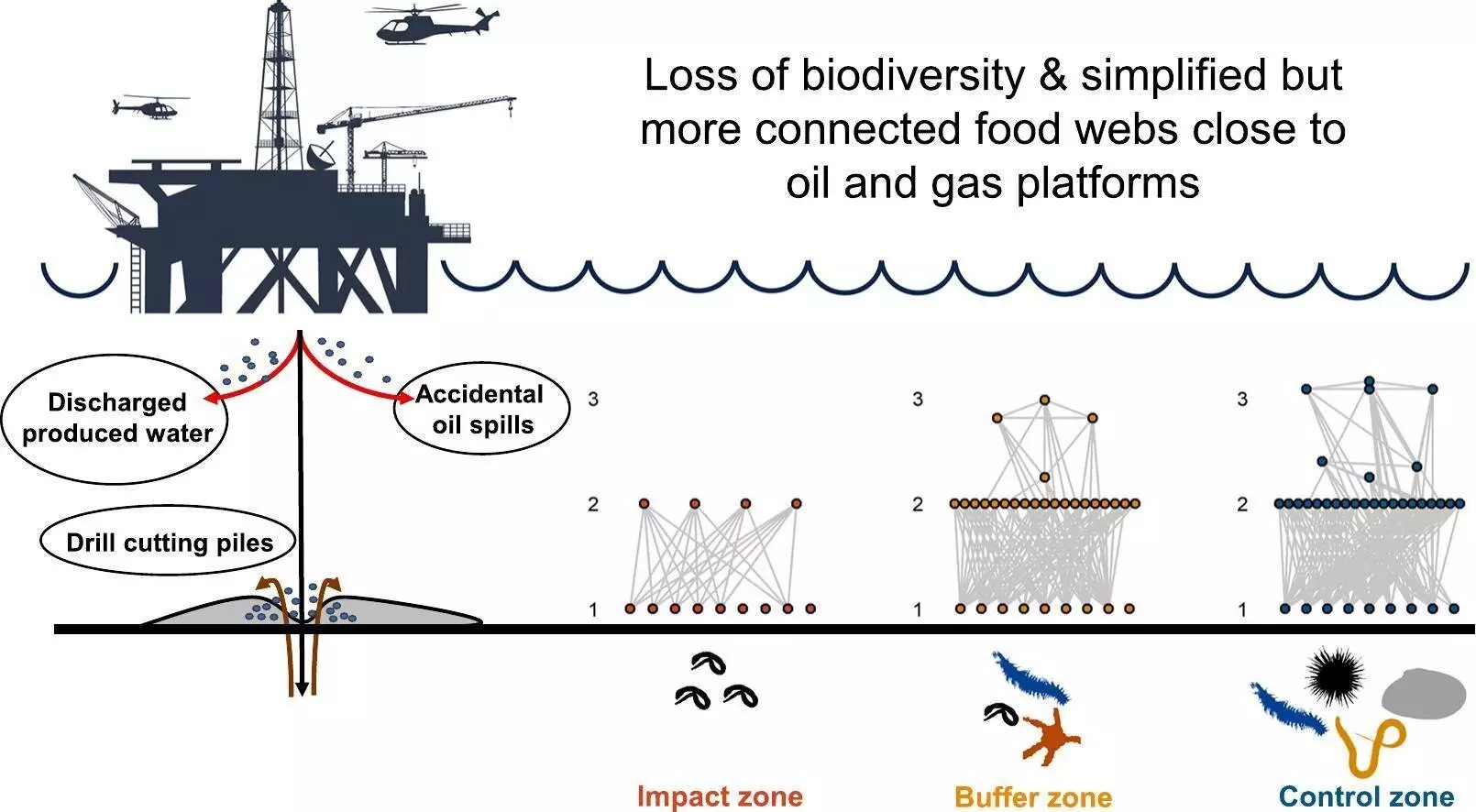The oceans are often revered as the cradle of life, teeming with diverse ecosystems maintaining a delicate balance. However, new research reveals an unsettling truth about human interference in these marine realms, particularly through oil and gas extraction in the North Sea. According to a comprehensive study led by esteemed researchers from the University of Essex, the Natural History Museum, and CEFAS, pollution levels near offshore drilling sites can skyrocket by more than 10,000%. Such staggering statistics raise alarming concerns regarding biodiversity loss, ecosystem integrity, and long-term environmental liabilities.
The consequences of offshore oil drilling extend beyond environmental degradation; they unravel the very fabric of marine food webs. This study meticulously examined data encompassing over 4,200 species collected from the waters off Scotland and England. What was the outcome? A profound decline in species richness and abundance near extraction sites, with biodiversity plummeting by nearly 30%. Such a dramatic alteration not only threatens marine life but underscores a pressing need for urgent action in environmental conservation.
Pollutants and Their Detrimental Effects
The research spotlights the chemical cocktail released by oil and gas extraction, which includes hydrocarbons and heavy metals such as lead and copper. These contaminants, found at shockingly elevated levels within just 500 meters of extraction platforms, suggest an insidious accumulation of toxic substances around these industrial sites. Hydrocarbons surged up to 10,613% higher than in unimpacted areas, while heavy metals recorded a 455% increase, contributing to a grim narrative for marine organisms that inhabit these zones.
Marine invertebrates—the backbone of underwater ecosystems—are particularly vulnerable to such pollution. As the study points out, when invertebrate populations dwindle, larger animals like fish follow suit. This alteration not only impacts marine biodiversity but also disrupts fishing industries and local economies reliant on a healthy ocean. The findings make it undeniably clear: the ocean is not an infinite resource; it is finite, and its health is intricately linked to human activity and policy.
The Disturbing Simplification of Food Webs
At the heart of this research lies a critical observation: the simplification of food webs in contaminated areas. As chemical pollutants infiltrate the ecosystem, food webs become less complex, posing a severe risk to ecological stability. The study found that larger predators, such as starfish, dwindled near platforms, while smaller opportunistic species like worms thrived. This imbalance presents long-term risks since healthy ecosystems require a variety of species at various trophic levels for resilience and functionality.
Such findings evoke a sense of urgency, especially as these platforms age and decommissioning becomes an imminent reality. The transition from extraction to decommissioning raises pertinent questions about current practices and future policies. Are we prepared to mitigate the environmental legacies left behind by decades of oil and gas exploitation? If past inaction is any indicator, the answer may be unsettling.
The Need for Collaborative Solutions
Given the gravity of the findings, researchers stress the necessity for collaboration among scientists, industry stakeholders, and government entities to ensure that decommissioning practices are both scientifically-led and environmentally sound. As Dr. Natalie Hicks aptly points out, the ocean serves as a critical natural resource, essential for combating climate change. Therefore, safeguarding its health should be a priority, transcending narrow economic interests and aiming for a more sustainable future.
The trajectory of British fossil fuel exploration is alarming, especially as governments chase short-term energy solutions. The science clearly highlights that actions taken today, such as continued drilling and inadequate decommissioning methodologies, will yield ramifications for generations to come. We must not overlook the resilience of the ocean as a powerful ally against climate change, nor should we underestimate our duty to honor and protect this precious resource.
A Call for Greater Awareness and Responsibility
To stem the relentless tide of environmental degradation, we must foster greater awareness about the implications of oil and gas extraction. This situation is not merely an ecological concern; it is an interconnected issue involving local communities, economies, and global climate health. Innovative approaches and effective regulations must be put in place to curb pollution levels and encourage a more sustainable means of energy production.
As the research demonstrates, the scales are tipped heavily against the ocean’s ecosystems; however, collective action can bring about change. With informed decisions that prioritize ecological integrity, we can work towards reclaiming our oceans and ensuring the rich marine biodiversity survives the evolution of energy needs. The future of our oceans depends on the steps we take today—keeping in mind that a sustainable relationship with our planet is not only necessary but also essential for humanity’s survival.

